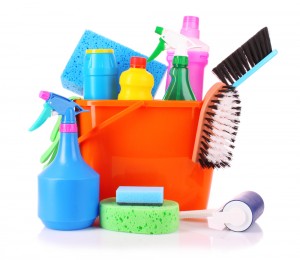Industrial bleach is an environmental toxin, capable of causing cancer and birth defects. Even at standard household concentrations, bleach can lead to worrisome symptoms.
Why Bleach is Not Suitable for Crime Scene Cleaning
The elements that make bleach an effective cleaner also make it dangerous. Bleach is exceptionally reactive and will react with cellular components as soon as it hits the cells. Industrial bleach is an environmental toxin, capable of causing cancer and birth defects. Even at standard household concentrations, bleach can lead to worrisome symptoms.
Depending On The Mixture Bleach Can Produce Dangerous Gases
Mustard gas is one of the most dangerous by-products of bleach. It occurs when bleach comes into contact with ammonia. Bleach can lead to eye and respiratory irritation when mixed with acids commonly present in other household cleaners, including vinegar and even some glass cleaners. In higher concentrations, the fumes produced from these combinations can be equally deadly.
Nose bleeds, neurological disorders, headaches, shortness of breath and chest pain, are just a small number of the potential side effects stemming from the use of bleach. Proper ventilation is necessary to avoid these conditions. Lingering fumes can also irritate asthma and other conditions long after clean-up is complete.
Skin Contact With Bleach Can Cause Rashes And Irritations
Bleach not only removes colour but eats through fabrics and other materials. Bleach is a corrosive, which means it has a damaging effect on any surface it touches. Burning, itching, and redness are the most common reactions, but if left on too long, bleach can lead to changes in pigment and permanent tissue damage.
Contact with non-porous surfaces should be minimised, as over time it can break down cellular structure. This further complicates clean-up in heavily trafficked areas as bleach requires curing time to be effective as a cleaner.
Bleach Is Not Effective For All Pathogens
Bleach does not kill all bacteria. Different types and concentrations of bleach may have different effectiveness ratings against certain forms of bacteria. Because it is highly reactive, chlorine bleach will act on whatever it comes in contact with first, whether dirt or bacteria. If it encounters dirt first, it may be rendered ineffective as a germicide.
Not So Easy After All
Balancing proper cure time with dilution ratios and safety makes cleaning with bleach difficult at best and unsafe at its worst. Thankfully, there are alternatives to cleaning the toughest jobs. One way to manage the situation is to hire a professional crime scene cleaning company like Melbourne Forensic Cleaning to ensure your property is remediated to a safe and habitable standard.


Comments
No comment yet.